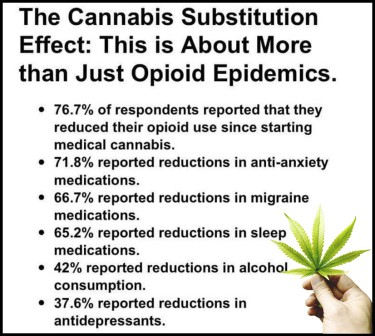
A recent report from Stat News indicates a decrease in federal lobbying efforts by cannabis industry operators. Notably, Curaleaf, a significant player in the industry, reduced its lobbying spending in Washington, D.C., by almost 40% during the first half of the year compared to its peak spending in 2019. Furthermore, both Columbia Care and Pax Labs took more drastic measures by eliminating their lobbying teams.
In response to this trend, Aaron Smith, co-founder and CEO of the National Cannabis Industry Association (NCIA), which actively lobbies lawmakers, expressed concern. He described it as a "cruel irony" that businesses are cutting back on government relations spending when advocacy is essential for the industry's success.
The NCIA spent $100,000 on lobbying this year, according to federal filings cited by Stat, a significant decrease from the $285,000 spent during the first half of 2019. Conversely, the U.S. Cannabis Council spent $150,000 on lobbying activities in the most recent quarter and intends to keep spending at or above this amount going forward. Additionally, the group has started a super PAC to build a large and diverse coalition.
The American Trade Association for Cannabis and Hemp, which began lobbying in late 2019, has modestly increased its lobbying in recent months, spending $50,000 this year. In 2022, the firm paid $50,000 for an entire year of lobbying.
However, two firms focusing on lobbying for cannabis reforms, the Cannabis Trade Federation and the Global Alliance for Cannabis Commerce, have reportedly folded entirely, according to the report.
Adam Goers, the senior vice president of corporate affairs for Columbia Care, acknowledged that although there may be less company spending on lobbying, the resources allocated are now more pragmatic and focused. As the cannabis industry faces ongoing regulatory challenges, effective lobbying efforts remain critical to navigating the evolving landscape.
Impact of Shifting Political Landscape on Cannabis Lobbying
The shift in the political landscape around marijuana legalisation can be traced to decreased federal lobbying spending by cannabis business operators. While many states have legalised medical and recreational marijuana, the federal government continues to classify it as a Schedule I restricted substance, resulting in inconsistencies between state and federal legislation. Because of the glacial pace of federal marijuana legislation and the lack of universal laws, cannabis businesses have hesitated to invest resources in lobbying activities.
The change in political administrations can also influence cannabis lobbying. Different administrations may prioritise different issues, impacting the trajectory of federal cannabis legislation and regulations—this dynamic challenges cannabis operators seeking to shape federal policies and advocate for the industry's interests.
As the cannabis industry grows and evolves, effective lobbying efforts remain crucial for influencing federal lawmakers and policymakers. Advocacy is essential for advancing federal marijuana reform, addressing banking and tax issues, and resolving industry regulatory challenges. While the decline in lobbying spending reflects the current political climate, it highlights the need for strategic and targeted advocacy efforts to ensure the long-term success and growth of the cannabis industry.
Challenges and Strategies for Effective Cannabis Lobbying
The reduced federal lobbying spending by cannabis industry operators has prompted them to reassess their strategies for effective advocacy. Navigating the complexities of the federal political landscape requires a thoughtful approach to address the challenges posed by marijuana's current Schedule I controlled substance classification.
One of the critical challenges faced by cannabis operators is the lack of uniform federal regulations. The absence of clear guidelines creates uncertainty and inhibits the industry's growth and investment potential. Effective lobbying efforts should focus on advocating for consistent and comprehensive federal regulations that align with the evolving state-level marijuana policies. By seeking clarity and standardisation in federal laws, cannabis operators can create a more stable and predictable business environment.
The disparity between state and federal marijuana laws also challenges the industry. To address this, lobbying efforts should promote federal legalization respecting states' rights to implement their cannabis policies. By supporting bills that recognise and appreciate the decisions made by individual states regarding marijuana legalisation, the cannabis industry can gain broader support among lawmakers and bridge the gap between state and federal laws.
Furthermore, lobbying efforts should prioritise the reform of outdated federal banking and tax regulations that disproportionately burden cannabis businesses. The current restrictions on banking services and the application of Section 280E of the federal tax code limit the industry's financial growth and viability. Advocating for fair and equitable treatment in these areas is essential for fostering the industry's development and levelling the playing field with other sectors.
The Impact of Reduced Lobbying on the Cannabis Industry
The decline in federal lobbying spending by cannabis operators can impact the industry's growth, regulatory environment, and overall competitiveness. With reduced resources dedicated to lobbying, cannabis businesses may face challenges in shaping federal policies and advancing their interests in a complex and rapidly evolving landscape.
One significant consequence of reduced lobbying efforts is the potential for slower progress in federal marijuana reform. Effective advocacy is critical in influencing lawmakers and policymakers to support cannabis-friendly legislation. Without sufficient lobbying, important bills addressing issues such as decriminalization, taxation, and access to financial services may face delays or more significant legislative obstacles. As a result, the cannabis industry could experience slower growth and be subject to a less favorable regulatory environment.
Lower lobbying spending may impact the industry's ability to address banking and financial concerns. Access to standard financial services remains a key barrier for cannabis entrepreneurs, limiting their capacity to conduct business efficiently and safely. Practical lobbying efforts can aid in passing legislation that allows the cannabis industry better access to banking and financial services, thus levelling the playing field and establishing a more robust and stable economic environment.
Additionally, the reduced lobbying spending may affect the industry's ability to advocate for social equity and inclusion within the cannabis sector. As the industry continues to grow, it is essential to ensure that it is representative and inclusive, addressing the historical disparities and injustices related to cannabis prohibition. Advocating for policies that promote diversity and social equity within the cannabis space requires dedicated resources and lobbying efforts. With reduced funding allocated to lobbying, there may be a risk of losing momentum in addressing these crucial social justice issues.
Bottom Line
The decline in federal lobbying spending by cannabis industry operators reflects the challenges and complexities they face in navigating the shifting political landscape. While some major players have reduced or eliminated their lobbying efforts, others continue to strategise and invest in advocacy to influence federal lawmakers and advance the industry's interests. Reduced lobbying can affect the industry's growth, regulatory environment, and social equity initiatives. As the cannabis sector evolves, effective lobbying remains critical for driving federal marijuana reform, addressing financial barriers, and fostering a diverse and inclusive industry. Successful advocacy efforts will be essential in shaping a favourable regulatory framework and ensuring the long-term success of the cannabis industry in the United States.







